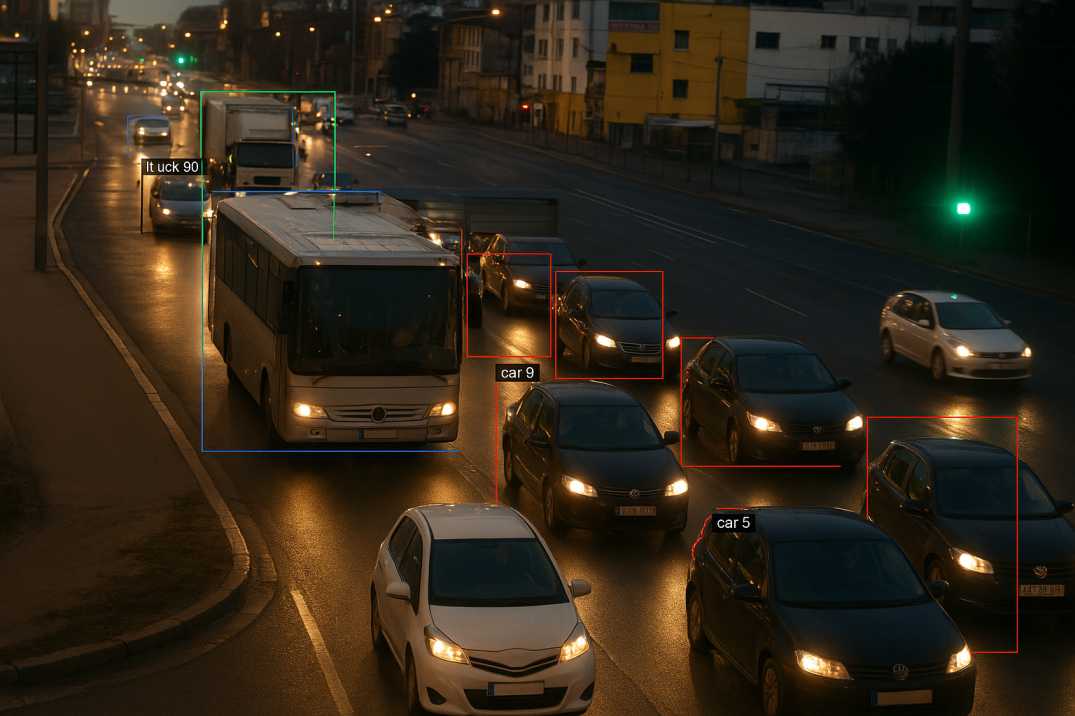Urban mobility is a growing challenge across Africa. Rapid population growth, increasing urbanization, and rising vehicle ownership are putting unprecedented pressure on city roads. Congestion, poor traffic planning, and safety concerns are everyday realities for millions of commuters. To tackle these issues, governments and infrastructure authorities are turning toward technology-driven solutions such as AI-based traffic monitoring, and digital traffic monitoring systems.
The future of road asset management Africa lies in integrating artificial intelligence and data-driven solutions into the heart of urban planning. These tools not only enhance mobility but also reduce long-term costs and improve road safety.

Across African cities, traditional traffic surveys often rely on manual counts and outdated methodologies. This makes it difficult to capture real-time traffic dynamics in fast-growing urban areas. Without accurate and continuous data, road expansion projects, public transport planning, and road safety measures often fall short.
Challenges include:
This is where AI traffic management systems and digital traffic surveys can make a measurable difference.
A digital traffic survey is a modern approach that uses cameras, IoT sensors, drones, and AI algorithms to collect and analyze traffic data in real time. Instead of relying on periodic manual counts, a digital traffic monitoring system provides continuous insights into vehicle movement, congestion patterns, and peak demand hours.
Such systems are being deployed in cities worldwide, and in Africa they offer a way to leapfrog outdated methods and build resilient, future-ready infrastructure.
AI-based traffic monitoring tools analyze live data streams to predict traffic build-ups before they occur. This helps city authorities reroute vehicles, improve signal timing, and reduce gridlock.
By integrating data from Road Safety Audits, AI systems identify accident-prone zones and monitor high-risk driver behaviors. Early interventions save lives and reduce the overall accident burden.
Through Pavement Condition Surveys and Road Inventory Inspections, planners can align maintenance schedules with traffic flow patterns. This prevents disruptive construction and ensures highways remain functional even during upgrades.
By using predictive analytics, authorities can optimize maintenance, reduce fuel wastage, and plan projects more effectively. For governments facing budget constraints, this translates into significant cost efficiency.
RoadVision AI is among the best AI road asset management companies, offering end-to-end solutions tailored for modern infrastructure challenges. With advanced Traffic Surveys, real-time monitoring, and AI-driven insights, RoadVision AI provides actionable data that empowers city planners, contractors, and policymakers.
Its expertise goes beyond traffic monitoring. Through its case studies and industry-leading blog, RoadVision AI demonstrates how technology can transform infrastructure outcomes. By enabling governments to adopt smarter systems, it accelerates the shift toward intelligent mobility across Africa.
The integration of AI road management Africa into everyday planning can transform not only mobility but also the economy and quality of life for millions.
Africa’s urban centers stand at a crossroads. Outdated systems can no longer meet the demands of growing populations and expanding economies. By adopting digital traffic monitoring systems, and AI-based traffic management systems, cities can build sustainable and efficient mobility solutions.
With a mission to create smarter, safer, and more sustainable roads, RoadVision AI ensures compliance with IRC Codes and international benchmarks while adapting to regional regulations across Africa. This empowers engineers and stakeholders to make informed, data-driven decisions that reduce costs, minimize risks, and transform the overall transportation experience.
Book a demo with us to learn how RoadVision AI can help your city adopt next-generation traffic monitoring solutions.
Q1: What is an AI traffic survey?
An AI traffic survey uses digital tools such as sensors and cameras to collect real-time traffic data, improving accuracy compared to manual surveys.
Q2: How does digital traffic monitoring benefit African cities?
It reduces congestion, improves safety, and ensures better infrastructure planning by providing continuous and reliable data.
Q3: Why should African governments invest in AI traffic management systems?
They lower long-term costs, improve commuter safety, and create smarter cities with sustainable mobility solutions.